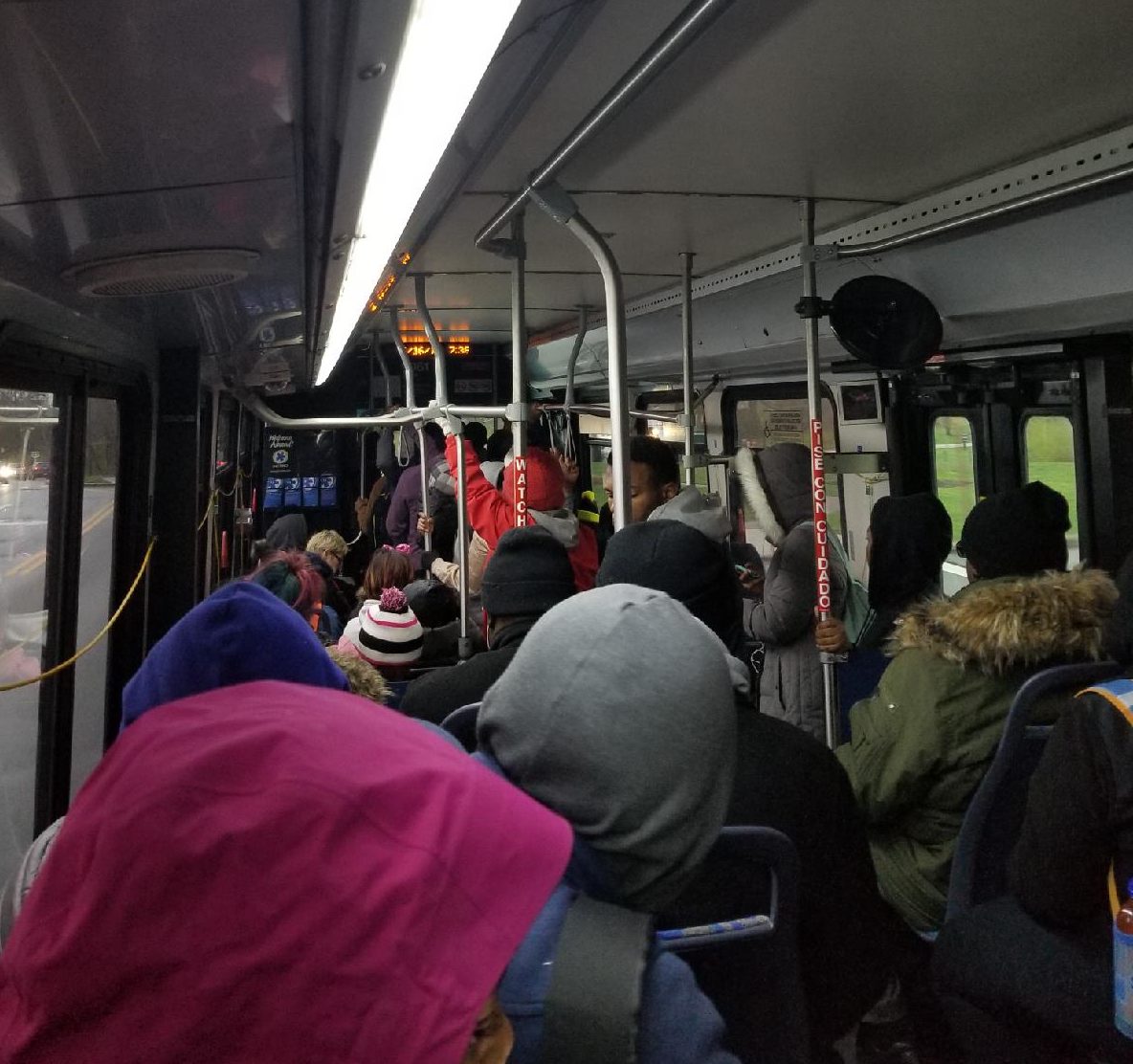Relying on the bus in Cincinnati has never been easy. To prevent it from getting even tougher, local transit riders are taking matters into their own hands.
The regional transit agency, SORTA, is facing a $38 million shortfall next year, which could trigger service cuts as deep as 20 percent. But last week, the SORTA board declined to put a small regional sales tax hike to fund transit up for a vote in November. Now bus advocates have to collect 8,000 signatures to get a city-only transit measure on the ballot.
SORTA currently operates a bare-bones system, with only a handful of bus routes providing service that arrives at least every 15 minutes throughout the day. Cincinnati ranks near the bottom among major American cities in access to jobs via transit.
"Some buses have air conditioning, others don’t. Some buses show up on time, and some don’t. Some buses show up, some don't," said Cam Hardy, head of the grassroots advocacy group the Better Bus Coalition. "It's hit or miss."

To turnaround service, bus advocates are launching a campaign to win more resources and increase local control over the transit system for the city of Cincinnati. The status quo, they say, gives too much power to Hamilton County, which encircles Cincinnati.
At a SORTA board meeting last week, city officials supported the idea of a transit ballot measure that would raise funds from a sales tax increase. Representatives from the county, however, opposed the measure, however, and there was no vote.
Longtime Hamilton County Commission President Todd Portune has spearheaded opposition to the ballot measure, making it a litmus test for the county's six appointments to the SORTA board that were filled this February.
Hardy says bus riders can't wait for the county. "It’s always 'This is not the right election,' said Hardy. "We’re fed up with it and we’re going to take it into our own hands and put it on the ballot and see if city residents will support it."
Hardy's coalition, which includes the local chapters of the Amalgamated Transit Union and the NAACP, will collect signatures for a ballot measure to raise funds for transit from a 0.5 percent income tax.
Since Hamilton County hasn't supported SORTA, Hardy also wants the city to get more control over transit resources. Express bus routes serving suburban areas should be cut, for instance, and city officials should decide where service operates.
"I don’t think it’s fair that city residents should be paying the brunt of this," said Hardy. "Why should you get a say if you don’t pay?"
SaveSaveSaveSave
SaveSave






